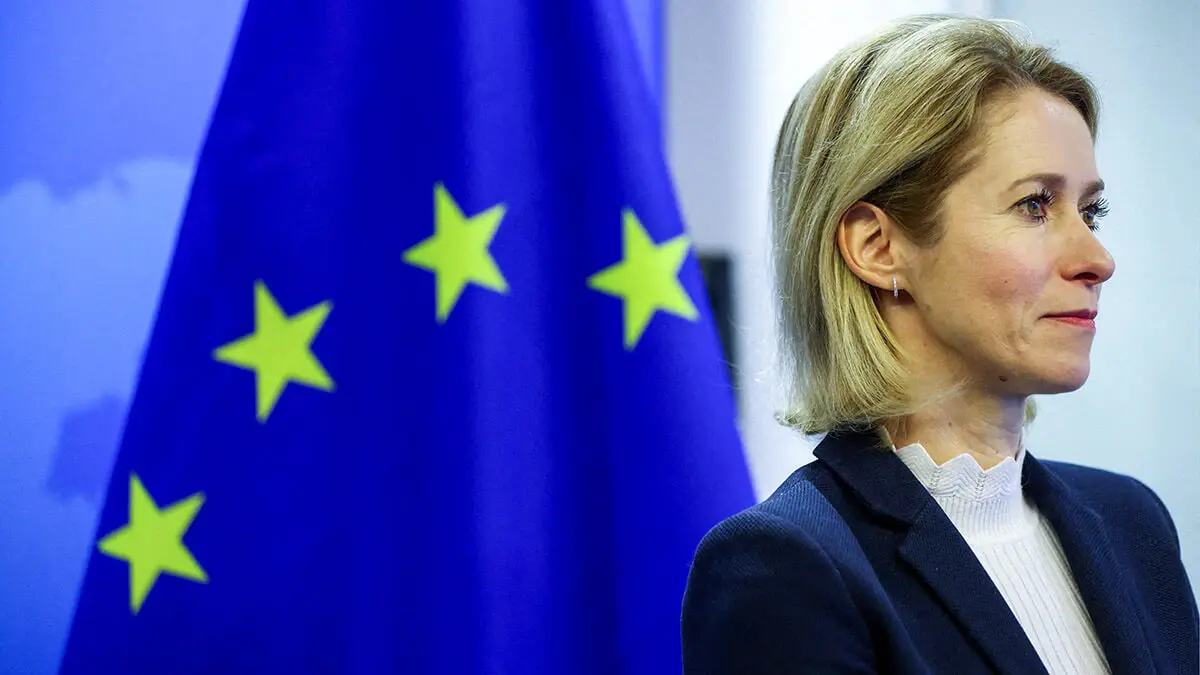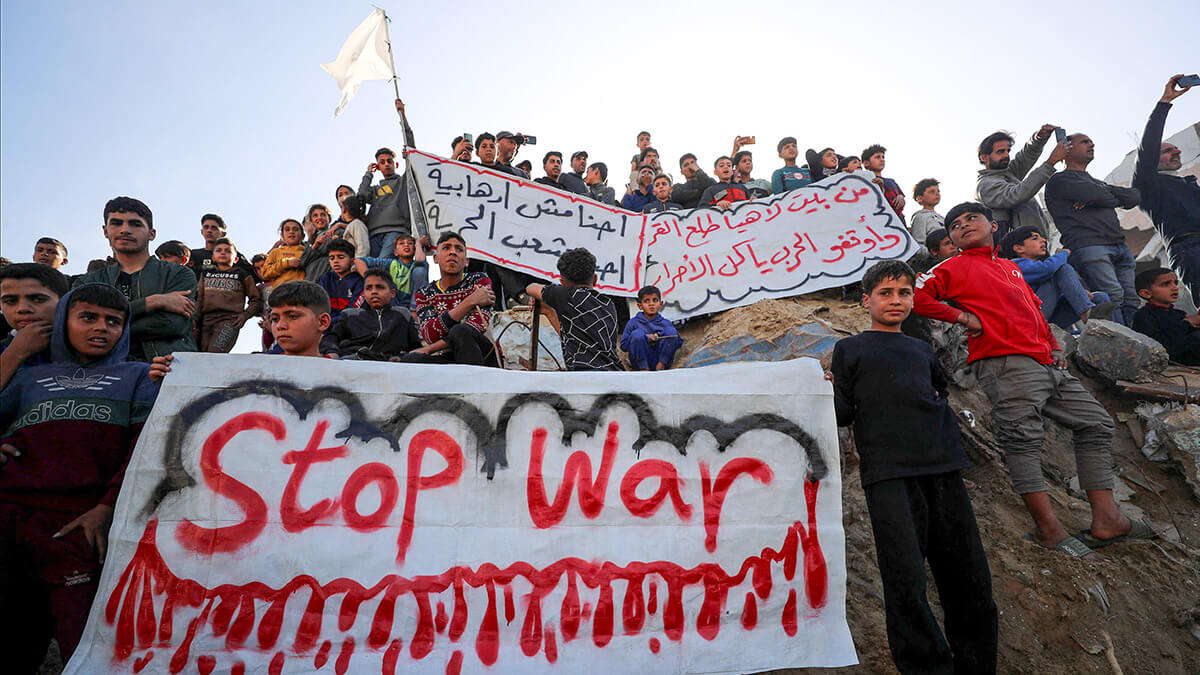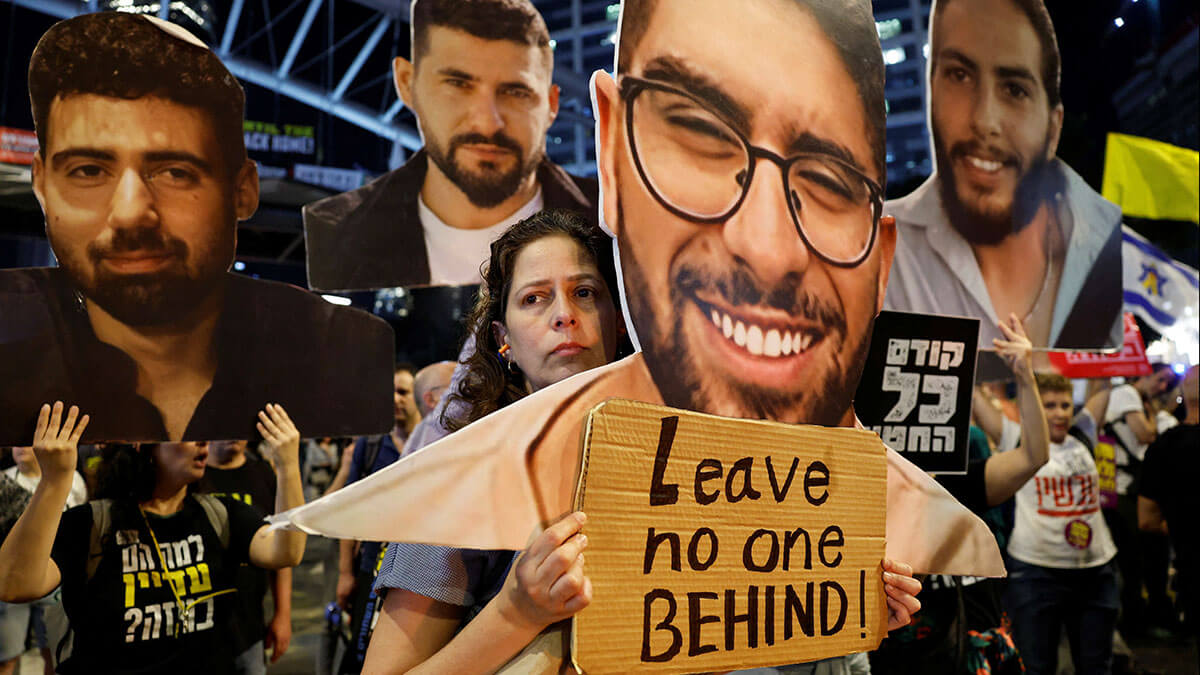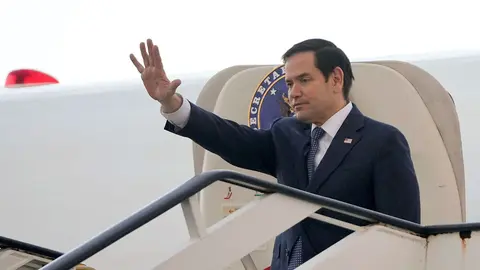The EU reviews its trade agreement with Israel amid the war in Gaza

- Hamas welcomes the European decision
- EU toughens tone against Israel while lifting sanctions on Syria
The European Union has announced a review of its association agreement with Israel in response to the serious humanitarian situation in Gaza, a move that has heightened diplomatic tensions between Brussels and Jerusalem. The decision, announced by EU foreign policy chief Kaja Kallas after a meeting of ministers in the Belgian capital, represents an unprecedented step by the bloc towards a more critical policy towards the Israeli government.
According to Kallas, ‘a large majority’ of the 27 member states supported the review of the free trade agreement in force with Israel since 2000, in which both parties committed to respecting human rights and democratic principles. Countries such as France, Sweden, Ireland and the Netherlands led the initiative in response to what they consider an ‘unsustainable situation’ in Gaza.
The trigger was the advance of the Israeli military offensive on Rafah, in the south of the Palestinian enclave, and reports of the prolonged blockade of humanitarian aid. Although Israel has authorised the entry of trucks carrying food and medicine in recent days, both the United Nations and humanitarian NGOs have warned that this is a very insufficient response.
Israel reacted harshly to the European announcement. Foreign Ministry spokesman Oren Marmorstein accused the EU of failing to understand the complex reality facing the country. ‘This war was imposed on Israel by Hamas, which continues to reject all ceasefire proposals, including the most recent US proposal based on the Witkoff framework, which has already been accepted by Israel,’ he said.
Israel claims that criticism of its conduct only reinforces the intransigent stance of Hamas, which is still holding 58 Israeli hostages in Gaza. For the Israeli government, singling out only one side of the conflict weakens diplomatic efforts and legitimises the Islamist group's strategy.
Per today’s statement by EU High Representative @KajaKallas regarding Israel:
— Oren Marmorstein (@OrenMarmorstein) May 20, 2025
We completely reject the direction taken in the statement, which reflects a total misunderstanding of the complex reality Israel is facing.
This war was forced upon Israel by Hamas, and Hamas is the… pic.twitter.com/BZsef9EDHp
Amid the hardening rhetoric towards Israel, many analysts and diplomats point to a significant omission: the lack of pressure on Qatar. The Gulf emirate has close and long-standing ties to the Hamas leadership, which it has financed for years and whose political leadership is based in Doha. Despite Qatar's central role as a mediator in the ceasefire and hostage release negotiations, the EU has made no public call for the country to exert its influence on the group.
This lack of pressure contrasts with Europe's insistence on reviewing its relations with Israel and has been harshly criticised by Jerusalem, which accuses the bloc of double standards. ‘We urge the EU to exert pressure where it should: on Hamas,’ reiterated the Israeli Foreign Ministry, stressing that unbalanced criticism only emboldens the armed group.

Hamas welcomes the European decision
Brussels' words did not go unnoticed in Gaza. In an official statement, Hamas openly welcomed the position of several European countries, describing it as a ‘principled stance rejecting the policy of blockade and starvation’. However, in its statement, Brussels also demanded that Hamas ‘immediately release all remaining hostages’ and allow humanitarian aid ‘to be distributed without interference’, as the terrorist group has been accused of stealing aid intended for civilians.
The Islamist organisation urged that these statements be translated into concrete actions to put pressure on Israel and ‘end the humanitarian catastrophe’. For Israel, this reaction is precisely evidence that disproportionate international criticism reinforces Hamas' refusal to reach an agreement and contributes to the prolongation of the conflict.

EU toughens tone against Israel while lifting sanctions on Syria
While reviewing and freezing its trade ties with Israel, the European Union has surprised with another high-impact move: the suspension of remaining economic sanctions on Syria.
In what many are calling a significant geopolitical shift, the bloc's foreign ministers agreed to lift the restrictions on the grounds of ‘facilitating the economic recovery’ of the country following the fall of Bashar al-Assad's regime in December 2024.
Today, we took the decision to lift our economic sanctions on Syria.
— Kaja Kallas (@kajakallas) May 20, 2025
We want to help the Syrian people rebuild a new, inclusive and peaceful Syria.
The EU has always stood by Syrians throughout the last 14 years - and will keep doing so.
However, this decision has generated concern and strong criticism. The new Syrian authorities, led by Al-Sharaa, a former leader of al-Qaeda in Syria, have already been accused of committing massacres against minorities in the country, including Alawites, Christians and Druze. Despite these allegations of systematic human rights violations, Brussels has chosen to open the door to normalising relations with the new regime, a move that stands in stark contrast to its approach towards Israel.










